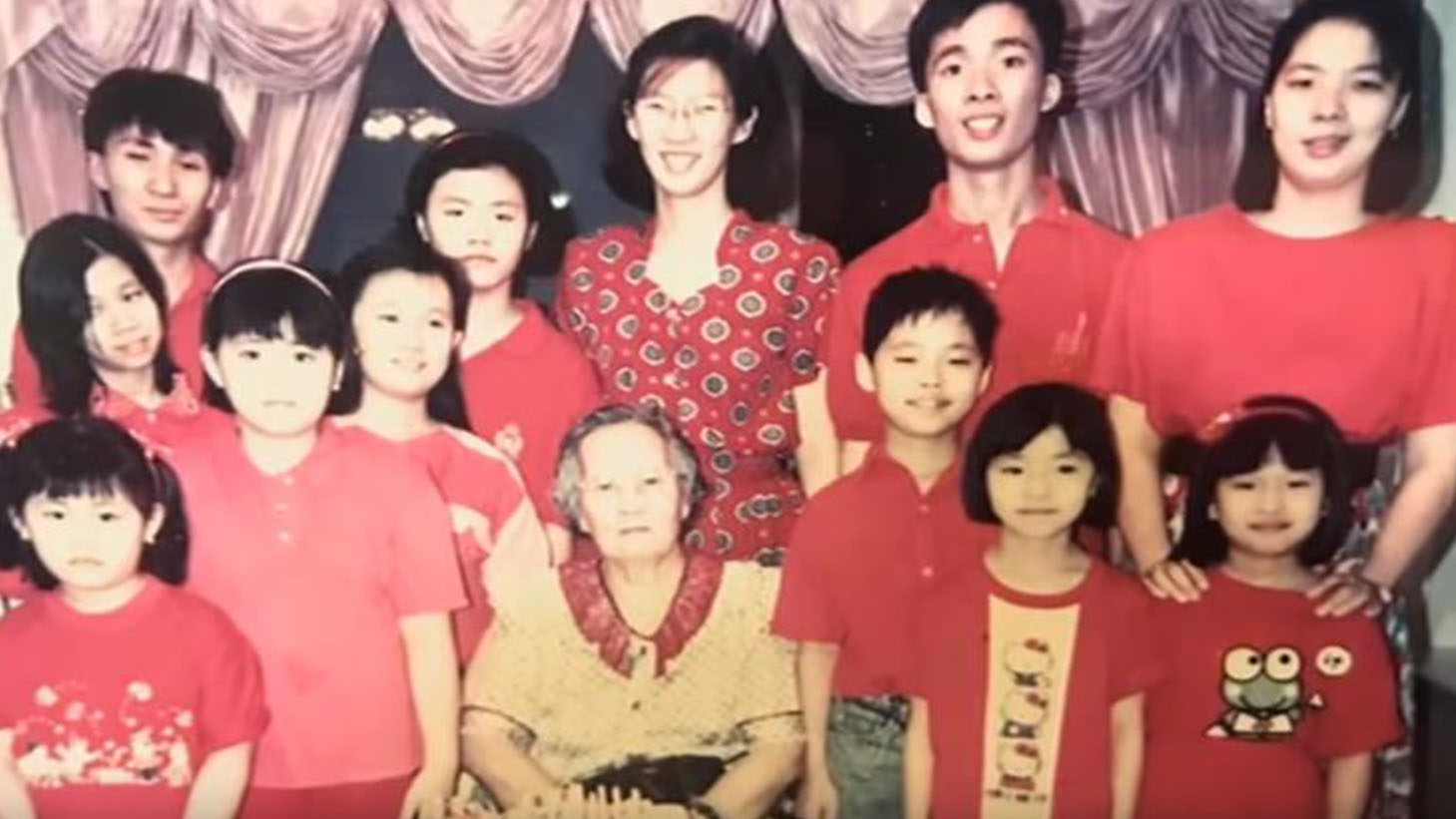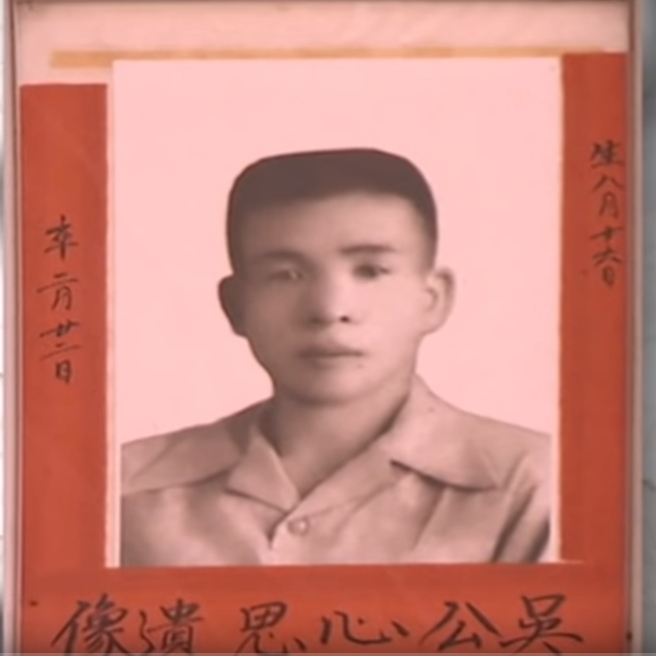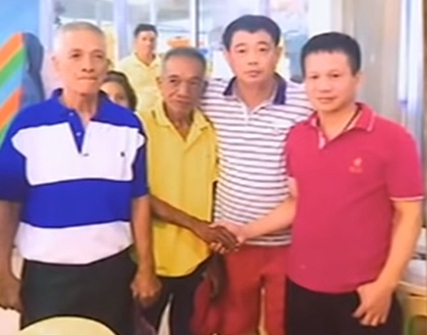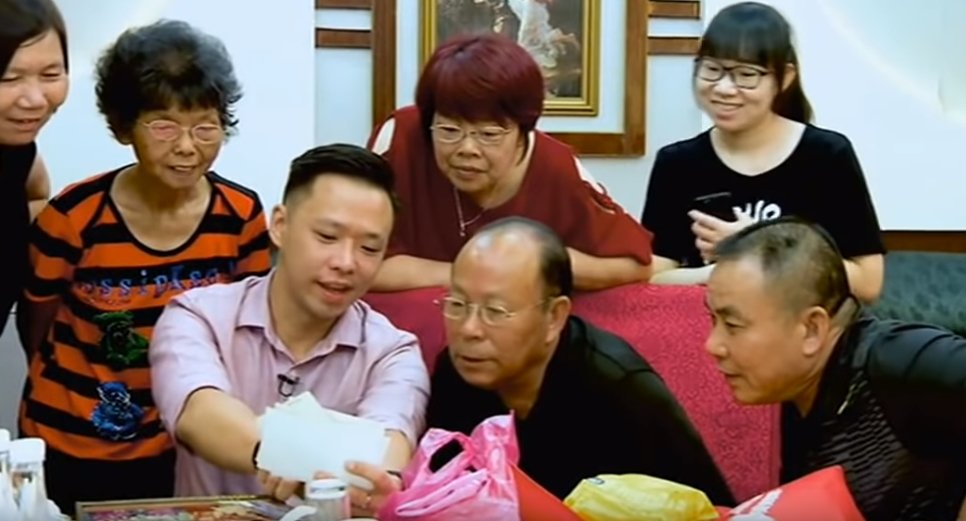
World
23:13, 26-Sep-2018
The ties that bind: Filipinos rediscover their roots in China
Updated
22:56, 29-Sep-2018
Assignment Asia
01:14

The history between the Philippines and China goes back a long way.
It intensified in the last century when migrants made their way from China's coastal regions to the Southeast Asian country to seek out a better life for themselves and their families.
It's little wonder that some Filipinos like to say, "There's a little Chinese in me." And in the age of social media, more Filipinos are getting a chance to rediscover their roots in China, especially with the help of relative-finder advocates.
Abraham Go's story
Abraham Go is one of the many Filipinos who recently visited China's Fujian Province after he found out that he had relatives in China.
The trip to Quanzhou City turned out to be an emotional one for Go whose father left behind a family in China that Go previously had not known existed.
But one of the first challenges faced by Go, who is over 70, was to prove to the Filipino authorities that he was Filipino in order to obtain a passport to visit China.
But what proof he could offer was deemed invalid as a person born before 1973 isn't considered Filipino unless his father was.

Abraham Go's father, Go Sim Si, left China in 1938 and never returned. /CGTN Photo
Abraham Go's father, Go Sim Si, left China in 1938 and never returned. /CGTN Photo
Go's father, Go Sim Si, migrated from China's coastal province of Fujian in 1938.
Go said that he wanted badly to go to China as he could imagine how happy he was going to be once he gets to meet relatives whom he had never met before.
That enthusiasm was not dampened even though Go, who has lived his entire life in Catarman in the central Philippines, does not speak a word of Chinese.
After months of overcoming bureaucratic hurdles, Go finally obtained his passport.
It took another six months before Go, together with his brother David and niece Marissa, were finally able to set foot in China.
They never imagined that they would be greeted with warmth and hospitality by family members.
After all, this was the same family that Go's father had abandoned eight decades ago.

Abraham Go and his brother David meet their Chinese relatives for the first time in Quanzhou, Fujian Province. /CGTN Photo
Abraham Go and his brother David meet their Chinese relatives for the first time in Quanzhou, Fujian Province. /CGTN Photo
"There's no reason to be angry anymore. The past is past. We are happy to have our uncles from the Philippines in China," said Go's nephew Wu Jiaxu.
Wu understood that his grandfather had to leave home in those early days as "life was hard and he had to leave to make money."
Go Sim Si took his eldest son with him to the Philippines, married a Filipina and had five more children, but never returned to China.
However, Wu's father, who passed away years ago, had stayed in touch with Go Sim Si.
Wu said this father had one dying wish: "Before he died, my father said he had brothers in the Philippines. He said we must go there on his behalf to meet his brothers."
Wu first traveled on his own to the Philippines to meet his two uncles Abraham and David Go.
Wu recalled: "They look a lot like my father. The first time I saw them, it was like I was seeing my father."
Abraham Go only found out in recent years that he had relatives in China from Catarman Mayor Eddie de la Cruz.
Cruz's friend, who turned out to be Go Sim Si's former employer, was able to obtain an address and a telephone number in China.
Cruz's son Eduardo, a relative-finder advocate, later served as a bridge between Go and his relatives in China.
Barnaby Lo's story
Separately, but also through Eduardo's help, CGTN correspondent Barnaby Lo also went on his own personal voyage to Jinjiang City, Fujian Province, to discover his Chinese roots.
Both sets of his family left China for the Philippines in the 1930s.

Barnaby Lo reunites with his Chinese relatives in Jinjiang, Fujian Province. /CGTN Photo
Barnaby Lo reunites with his Chinese relatives in Jinjiang, Fujian Province. /CGTN Photo
Even though Lo's paternal grandmother lived with his family, not once did she mention her life in China.
She died in 2010.
The eventual visit to meet his relatives in Jinjiang turned out to be a treasure trove of surprises and uncovered up countless nuggets of forgotten and unknown family history.
Lo found out that his grandmother visited relatives in China in 1981, the year he was born.
There are at least 2 million Chinese-Filipinos, or Chinoys, each of them with blood ties to China, one way or another.
(Cover photo via Barnaby Lo)

SITEMAP
Copyright © 2018 CGTN. Beijing ICP prepared NO.16065310-3
Copyright © 2018 CGTN. Beijing ICP prepared NO.16065310-3